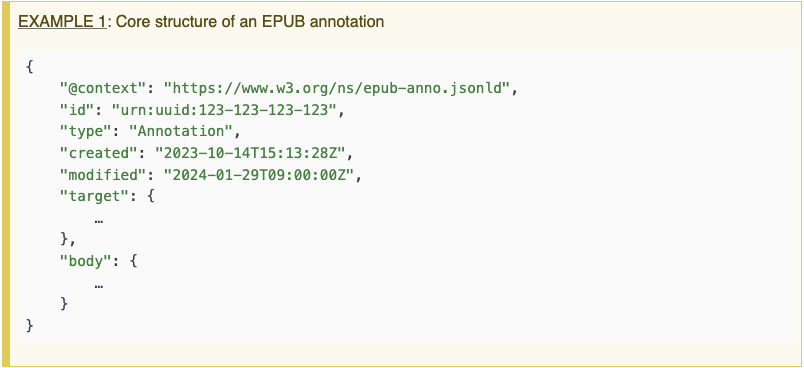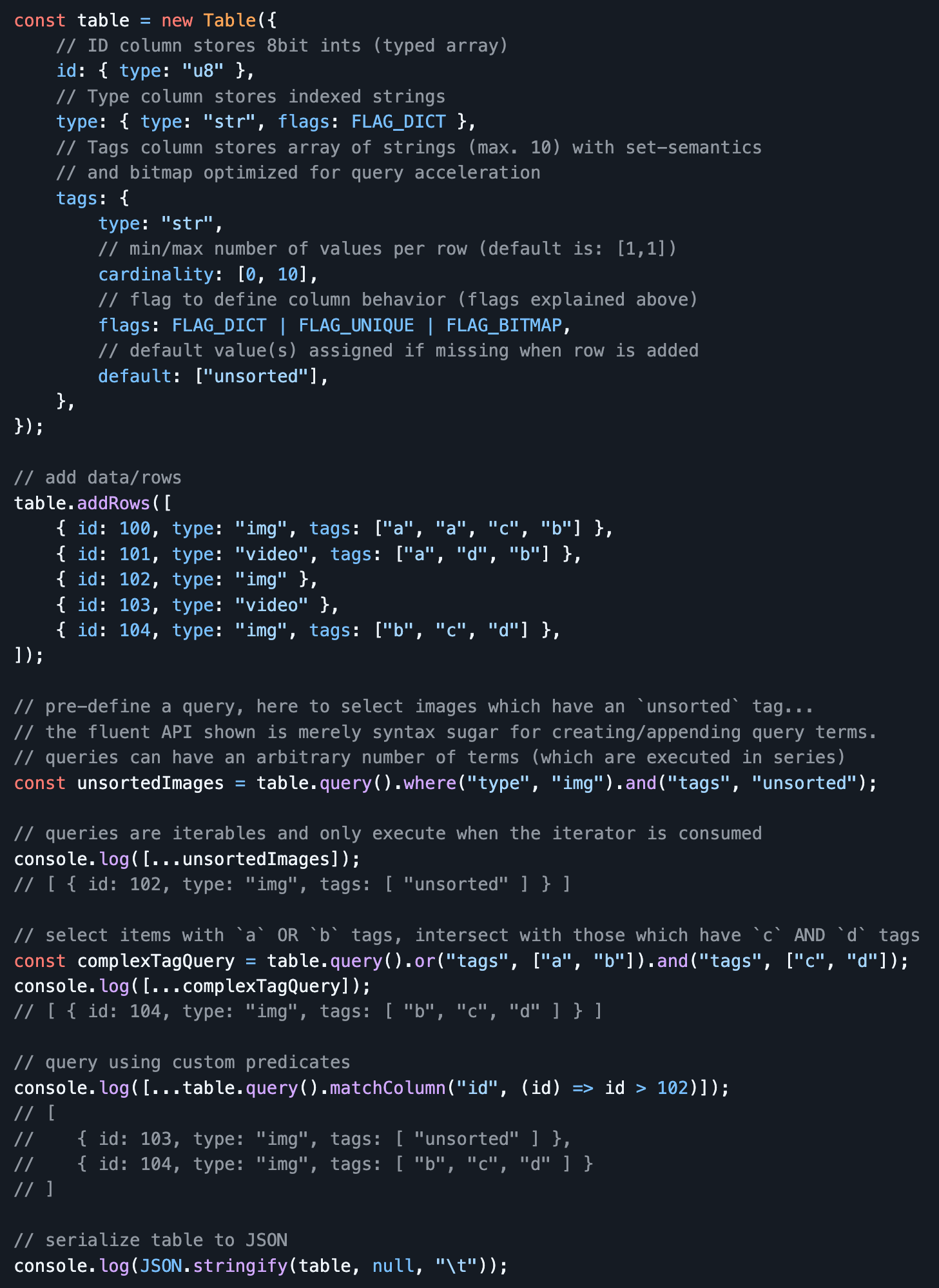#ReleaseSaturday — This week I've been working on extracting, refactoring & generalizing the minimal column store database I've been using for my personal knowledge/media management toolset, and I'm happy to share it with the world now:
https://thi.ng/column-store
This is an in-memory column store database with:
- Customizable column storage types with configurable min/max cardinality, support for optional and/or tuple-values, default values
- Support for custom column type implementations
- Optional dictionary encoding of column values (memory & filesize saving)
- Powerful extensible multi-term query engine with built-in OR/AND/NOR/NAND operators and predicate-based matchers (column, row, partial row). Queries can be pre-built and then executed as standard JS iterables
- Optional bitfield indexing for dramatic query acceleration (esp. for complex multi-term queries)
- Dynamic adding/removing of columns
- JSON serialization with optional RLE compression (in my PKM dataset with ~20k items, the RLE compressed version is only 29% of the normal JSON serialization)
I hope the readme and code examples give a decent overview for now... I've been using the overall system for a couple of years now, but this new packaged version is still marked as _alpha_. Everything's still being worked on.
Also, for those wondering what's the point of this all and why not using SQLite etc. — I find there're many use cases for a which a pure JSON-based approach is more than sufficient (without requiring extra tools and interfacing layers). The structure/storage model and the bitfield optimizations enable very fast query performance (compared to other JSON db's I've tried in the past)...
(Including all dependencies [only some other thi.ng packages], the entire DB package is ~6KB brotli'd, 19KB uncompressed...)
#ThingUmbrella #TypeScript #JavaScript #JSON #Database #QueryEngine #RLE #SmallWeb


![This specification allows implementations to set limits on the range and precision of numbers accepted. Since software that implements IEEE 754 binary64 (double precision) numbers [IEEE754] is generally available and widely used, good interoperability can be achieved by implementations that expect no more precision or range than these provide, in the sense that implementations will approximate JSON numbers within the expected precision. A JSON number such as 1E400 or 3.141592653589793238462643383279 may indicate potential interoperability problems, since it suggests that the software that created it expects receiving software to have greater capabilities for numeric magnitude and precision than is widely available.](https://files.mastodon.social/media_attachments/files/115/956/324/896/577/641/original/aba8465638193313.png)
